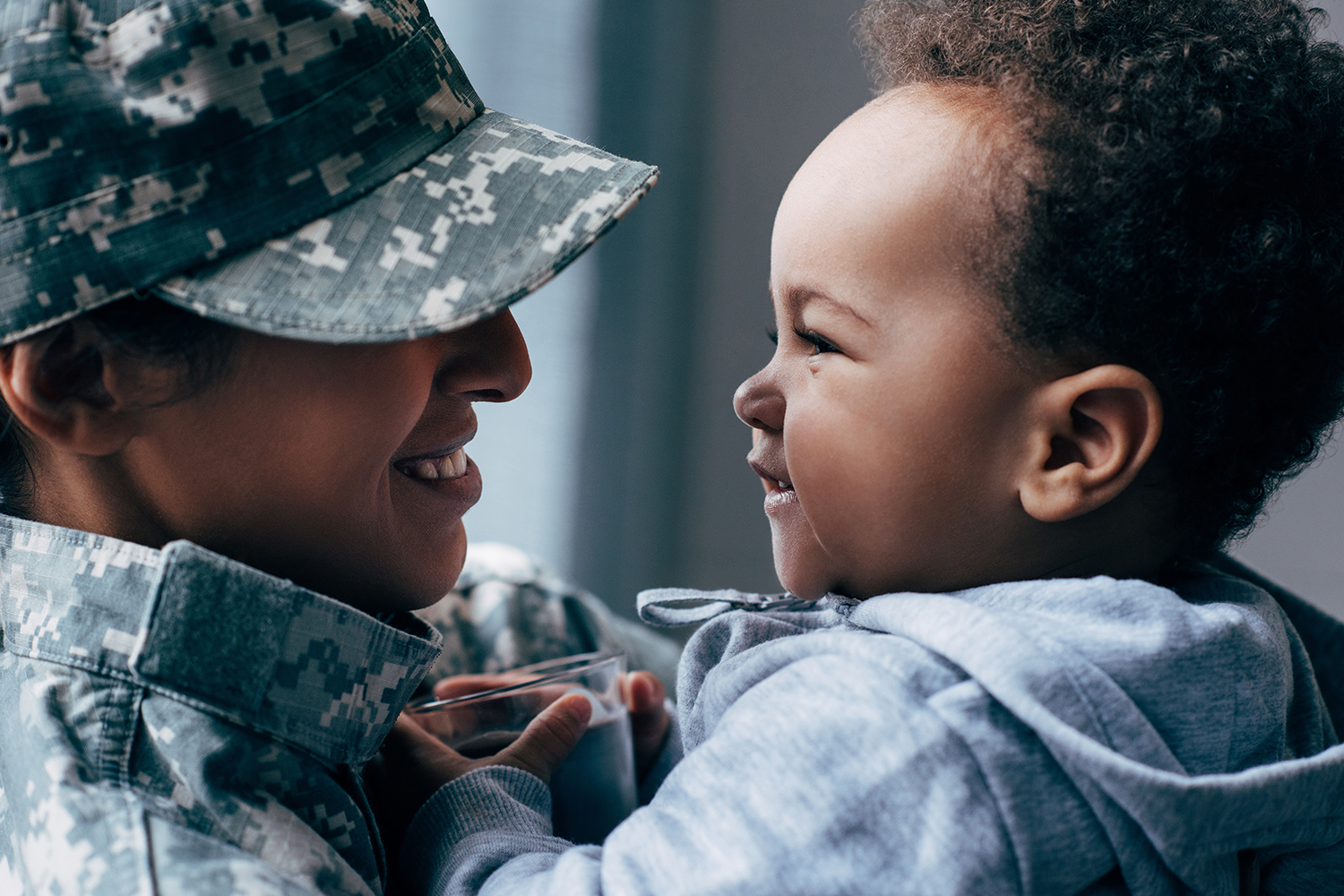Surviving Military Relocations: Top Parenting Strategies
Managing military relocations as a parent? Prioritize consistent routines – bedtime rituals provide stability. Communicate regularly with family for updates and support. Foster emotional resilience through coping strategies and open dialogue. Let children take part in decisions like choosing a new home. Build connections in the new community for support. Stay flexible and explore new opportunities together. Remember self-care for yourself amidst the challenges. Celebrate achievements to maintain morale. These strategies are key in handling military relocations successfully.
Key Takeaways
- Establish consistent bedtime routines to provide stability.
- Prioritize family communication through regular check-ins.
- Support emotional resilience with coping strategies and open dialogue.
- Include children in decision-making about the relocation process.
- Connect with support networks in the new community for assistance.
Establishing Consistent Routines

When facing military relocations, maintaining consistent routines can provide stability and comfort for your children amidst the changes. One of the most impactful routines to establish is a consistent bedtime routine. Bedtime routines help signal to your child that even though things are changing around them, some things remain constant.
Start by setting a specific bedtime and gradually winding down activities leading up to that time. This could include activities like reading a bedtime story, brushing teeth, or listening to calming music. Consistency is key here; try to keep the bedtime routine similar, even in a new location.
Prioritizing Family Communication

To maintain a sense of connection and support throughout military relocations, prioritizing family communication becomes an essential aspect of maneuvering the changes together.
Family check-ins are critical during this time. Schedule regular times for everyone to come together, share updates, and address any concerns. Utilizing virtual communication tools can bridge the distance gap, allowing for face-to-face interactions even when miles apart.
Open dialogue is key. Encourage each family member to express their feelings, fears, and hopes openly. This not only strengthens bonds but also helps in understanding and supporting each other through the relocation process.
Establishing support systems within the family is crucial. Lean on each other for emotional support, practical help, and reassurance.
Supporting Emotional Resilience
Supporting emotional resilience during military relocations requires acknowledging and addressing the unique challenges that come with such significant life changes. As a parent working through this process, it’s important to recognize the parenting challenges that may arise as you and your family adapt to a new environment.
Coping strategies play a vital role in helping both you and your children adjust to the emotional rollercoaster that often accompanies relocations.
Providing emotional support for your family members is key to building family resilience during this shift. Encouraging open communication, actively listening to your children’s concerns, and validating their feelings can help foster a sense of security and stability amidst the uncertainties of relocation.
Additionally, creating routines, maintaining familiar traditions, and staying connected with loved ones can offer comfort and a sense of normalcy during this period of change.
Involving Children in Decision-Making

When it comes to relocating with your children, involving them in decision-making can help ease the move. Consider discussing kid-friendly housing choices and involve them in picking a new home.
Additionally, include them in deciding on family activities and places to explore in your new location.
Kid-Friendly Housing Choices
When choosing a new home during a military relocation, involving your children in the decision-making process about kid-friendly housing choices can help them feel more engaged and empowered during this change. Consider neighborhood options and school considerations together to guarantee a smooth shift.
Discuss safety features like secure locks and alarms to make your children feel secure. Exploring outdoor spaces that offer playgrounds or green areas can excite them about their new surroundings.
Ask your children about their preferences for the neighborhood. Do they want to be close to a park or have friends nearby? Inquire about school options and involve them in the decision-making by researching together. Look for a house with safety features such as fenced yards and childproofing.
Encourage them to visualize how they’d use the outdoor spaces and how it can become their new play area.
Family Activity Preferences
Involving your children in decisions about family activities can foster a sense of ownership and excitement as you navigate through the changes of military relocation.
When it comes to family activity preferences during relocation, consider incorporating outdoor adventures and creative projects into your plans.
Outdoor adventures like hiking, biking, or exploring local parks can help your children connect with nature and stay active while adapting to a new environment.
Encouraging creative projects such as arts and crafts, DIY home decorations, or even starting a family scrapbook can provide a sense of routine and fun during the relocation process.
Connecting With Support Networks
To navigate the challenges of military relocations, it’s essential to establish connections with reliable support networks in your new community. Engaging with online forums can be a great way to connect with other military families and gain valuable insights into the local area. Look for local meetups or events where you can meet other parents facing similar situations.
Joining military spouse groups can provide a sense of camaraderie and understanding that’s unique to the military lifestyle. These groups often offer a wealth of information on resources available in the new area. Consider enrolling in parenting classes offered in the community. Not only can these classes provide useful tips and strategies for dealing with parenthood, but they also offer an opportunity to meet other parents who may become part of your support network.
Planning Ahead for Transitions
As you prepare for the journey ahead in your new community, it’s important to anticipate upcoming changes and make proactive plans to ease the shift for yourself and your family. Preparation planning is vital to guarantee a smooth relocation experience. Start by creating a moving checklist that includes tasks like updating your address, transferring medical records, and notifying utility companies.
When it comes to school enrollment, research potential schools in your new area and gather necessary documents for registration. Reach out to the school to understand their enrollment process and deadlines.
Community resources can also play a significant role in helping your family adjust. Look into local support groups, military family services, and recreational activities that can provide a sense of belonging and assistance during the transition.
Embracing Flexibility and Adaptability

You may find that embracing flexibility and adaptability can help your family navigate the challenges of military relocations more smoothly.
By being open to change together, you can foster a sense of unity and support within your family unit.
Building resilience in your children can equip them with the skills to thrive in new environments and overcome obstacles.
Embracing Change Together
Embracing change together requires a mindset of flexibility and adaptability to navigate the challenges of military relocations effectively. As a military family, you understand the importance of unity in transformation. Embracing change can be an opportunity for family bonding and adjusting together.
During relocations, it’s essential to involve everyone in the process. Encourage open communication and express your feelings about the upcoming changes. By embracing change as a family, you can create a sense of togetherness and support each other through the transformation.
Flexibility is key when facing the uncertainties of military life. Be prepared for unexpected twists and turns, and approach them with a positive attitude. Embrace the opportunity to explore new places, meet new people, and create new memories as a family.
Building Resilience in Children
To help your children build resilience during military relocations, fostering flexibility and adaptability is essential. Building resilience involves nurturing independence and fostering growth in your children. Military life can bring about unexpected changes, making adaptability a vital skill for your kids to develop.
Encouraging them to embrace new environments with an open mind can help them navigate shifts more smoothly.
One way to cultivate flexibility in your children is by involving them in the planning process of relocations. Allow them to have a say in certain decisions, like how to decorate their new room or what activities to explore in the new location. This involvement can empower them and provide a sense of control amidst the uncertainties of moving.
Additionally, promoting a positive attitude towards change and highlighting the opportunities that come with it can help your children see relocation as an adventure rather than a challenging experience.
Exploring New Opportunities Together
Exploring new opportunities together can foster resilience and a sense of unity within the family during a military relocation. One way to do this is by exploring hobbies as a family. Whether it’s painting, hiking, or even learning a new sport, engaging in activities that everyone enjoys can create lasting memories and strengthen bonds.
Trying new foods is another exciting way to explore together. Seek out local restaurants or markets to taste the flavors of your new location. This not only exposes your family to different cuisines but also encourages a spirit of adventure and open-mindedness.
Promoting Self-Care for Parents

As a parent managing military relocations, it’s vital to prioritize your well-being amidst the changes. Encouraging self-care habits can help you handle stress and maintain a healthy mindset during this challenging time.
Don’t hesitate to seek out support networks, whether through fellow military families, online communities, or professional counseling services.
Prioritizing Parental Well-Being
Prioritizing your well-being as a parent during military relocations is essential for maintaining your physical, emotional, and mental health. Self-care strategies are important in helping you navigate the challenges that come with frequent moves.
Make time for activities that recharge you, whether it’s reading a book, going for a walk, or practicing mindfulness. Engaging in hobbies or exercises can provide a much-needed break and boost your overall well-being.
Parental support plays a significant role in coping with the stress of military relocations. Reach out to friends, family, or support groups to share your experiences and feelings. Talking to others who understand what you’re going through can be comforting and provide valuable insights. Remember, you aren’t alone in this journey.
Focus on your well-being by establishing routines that promote balance and stability. Simple coping techniques like deep breathing, journaling, or setting realistic goals can help you manage stress and stay centered amidst the uncertainties of military life.
Prioritize yourself, so you can better care for your family during relocations.
Encouraging Self-Care Habits
To maintain your well-being during military relocations, incorporating self-care habits is essential for managing the challenges effectively. Remember to prioritize yourself amidst the chaos of moves and adjustments.
Start by integrating mindful meditation into your daily routine; even a few minutes of quiet reflection can help center your thoughts. Additionally, establishing exercise routines won’t only keep you physically fit but also boost your mood and energy levels during stressful times.
Don’t underestimate the importance of self-care indulgences like spa days to relax and rejuvenate. Taking time for yourself isn’t selfish but necessary for your mental and emotional health.
Moreover, carving out hobby time for activities you enjoy can provide a much-needed escape from the demands of relocation.
Incorporating these self-care practices won’t only benefit you but also positively influence how you navigate the challenges of military relocations. Remember, taking care of yourself is an important part of being able to support your family effectively.
Seeking Support Networks
Finding and connecting with support networks is essential for promoting self-care as a parent during military relocations. During times of change, leaning on online communities and local resources can provide a sense of belonging and understanding.
Engaging with other military spouses and making veteran connections can offer valuable insights and tips on how to navigate the challenges that come with relocating frequently.
Online communities such as social media groups or forums dedicated to military families can be a great source of support. These platforms allow you to share experiences, seek advice, and form connections with others who are going through similar situations.
Additionally, tapping into local resources like family support centers on military bases or community organizations can provide access to services that cater specifically to the needs of military families.
Celebrating Milestones and Achievements
When managing military relocations, it’s vital to take the time to acknowledge and celebrate the milestones and achievements, both big and small, that you and your family accomplish along the way.
Whether it’s graduation celebrations marking an academic milestone or milestone birthdays signifying personal accomplishments, these moments are essential for maintaining morale and a sense of normalcy amidst the upheaval of moving.
Recognizing these achievements can help create a sense of stability and pride in your family unit.
Consider throwing a small party, going out for a special meal, or even just having a movie night at home to celebrate these moments.
Encourage your children to share their successes, no matter how minor they may seem, and make sure to acknowledge and praise their efforts.
Frequently Asked Questions
How Can I Help My Child Maintain Friendships During Relocations?
To help your child maintain friendships during relocations, encourage friend support by setting up virtual hangouts and sending care packages. Use communication strategies like video calls and regular updates to stay connected and nurture those relationships despite the distance.
What Are Some Ways to Keep a Sense of Home in Temporary Housing?
When you’re in temporary housing, make it feel like home by adding personalized decorations. Keep routine consistency with familiar bedtime stories or morning routines. These small touches can help create a sense of stability during changes.
How Can I Address School Transitions to Minimize Disruption?
When changing schools due to relocation, focus on school support, community involvement, and emotional preparation. Communicate with teachers, provide background information, and involve your child in the process. Establish routines early to minimize disruption.
Are There Resources for Helping Children Cope With Deployment Separations?
During deployments, the military community offers deployment support and counseling options for children. Encourage them to connect with peers who understand. These resources can help them cope with separation and offer valuable emotional support.
What Strategies Can I Use to Support My Child’s Mental Health During Moves?
To support your child’s mental health during moves, prioritize open communication. Share feelings, maintain routines, involve them in planning, and validate their emotions. Offer coping strategies like journaling or mindfulness to promote emotional well-being throughout the relocation process.
Conclusion
In wrapping up, managing military relocations as a parent can be challenging, but with the right strategies in place, you can help your family thrive during this shift.
By establishing routines, prioritizing communication, supporting resilience, involving children, connecting with support networks, embracing flexibility, exploring opportunities, promoting self-care, and celebrating achievements, you can create a strong foundation for your family to weather the changes together.
Remember, you’ve got this! Stay strong and keep moving forward.

Chad Adan Kace, a young dad from Vermont, shares his parenting journey with a touch of humor and lots of love. Father to a lively baby, he explores the joys and challenges of fatherhood through his stories.







